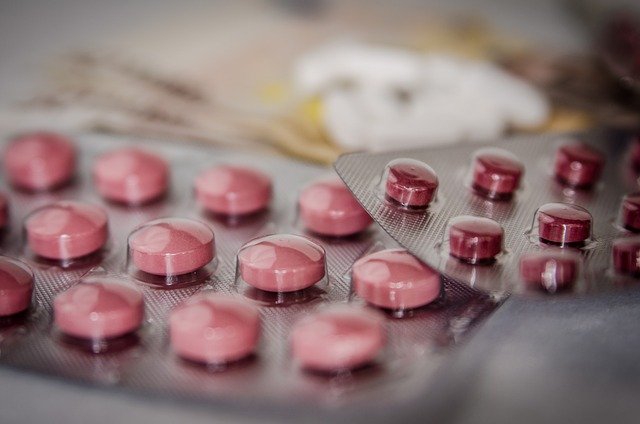Medications That Cause Kidney Disease: What You Should Know About
Medications play a vital role in treating many health conditions, but some drugs can negatively affect kidney function over time. Prolonged use or high doses of certain medications may lead to kidney damage, potentially resulting in chronic kidney disease (CKD). Early recognition of symptoms related to kidney problems is important to help reduce further harm and support overall well-being.

Kidneys play a vital role in filtering waste from the blood and maintaining overall health. While medications help manage many conditions, certain drugs can adversely affect kidney function, especially with prolonged use or in combination with other risk factors. Being informed about these medications and working closely with healthcare providers can help minimize risks while still receiving necessary treatment for health conditions.
What Medications Can Cause Kidney Disease?
Several classes of medications have been associated with kidney damage. Non-steroidal anti-inflammatory drugs (NSAIDs) like ibuprofen, naproxen, and aspirin can reduce blood flow to the kidneys when taken regularly or in high doses. This reduction in blood flow may lead to acute kidney injury, particularly in individuals with existing kidney problems or dehydration.
Certain antibiotics, especially aminoglycosides (gentamicin, tobramycin) and vancomycin, can cause kidney damage, particularly with prolonged use or high dosages. These medications may accumulate in kidney cells and cause direct toxicity to kidney structures.
Blood pressure medications, while often prescribed to protect kidney function, can sometimes have adverse effects. ACE inhibitors and ARBs may cause problems in certain situations, such as when a patient is dehydrated or has renal artery stenosis. Diuretics can also affect kidney function if they cause excessive fluid loss or electrolyte imbalances.
Other medications with potential kidney effects include certain chemotherapy drugs (cisplatin, methotrexate), lithium (used for bipolar disorder), proton pump inhibitors (with long-term use), and some HIV medications. Even common over-the-counter medications like acetaminophen can affect the kidneys if taken in excessive amounts or combined with alcohol.
How to Recognize the Signs and Symptoms of Kidney Disease
Early detection of kidney problems can prevent progression to more serious disease. Changes in urination patterns are often the first noticeable signs – these may include decreased urine output, increased frequency, foamy or bloody urine, or difficulty urinating.
Fluid retention resulting in swelling (edema), particularly in the legs, ankles, feet, face, or hands, can indicate kidney dysfunction. Fatigue and weakness are common as kidneys fail to clear waste products effectively, leading to a buildup of toxins in the bloodstream.
Shortness of breath may develop if fluid builds up in the lungs or if kidney disease leads to anemia, which reduces oxygen transport in the blood. Other symptoms include persistent itching, muscle cramps, and sleep problems. Many patients also report a metallic taste in the mouth or persistent bad breath due to waste accumulation.
Laboratory tests are essential for diagnosis, as kidney disease often progresses silently until significant damage has occurred. Regular monitoring of kidney function through blood tests (measuring creatinine and BUN levels) and urine tests can detect problems before symptoms appear, especially for those taking high-risk medications.
How Can Medication-Induced Kidney Damage Be Prevented?
Prevention starts with awareness of medication risks. Always inform your healthcare providers about all medications you take, including over-the-counter drugs, supplements, and herbal remedies. This comprehensive medication review helps identify potential interactions that could harm kidney function.
Proper medication dosing is crucial, especially for drugs cleared by the kidneys. Healthcare providers should adjust dosages based on kidney function, particularly in older adults or those with existing kidney issues. Following prescribed dosages and schedules helps minimize risks.
Staying well-hydrated supports kidney function, especially when taking medications that can affect the kidneys. Adequate fluid intake helps flush medications through the system and prevents concentration of potentially harmful substances in kidney tissue.
Regular monitoring of kidney function through blood and urine tests is essential for patients on high-risk medications. These tests can detect early changes in kidney function before permanent damage occurs. If you’re taking medications known to affect kidneys, discuss appropriate monitoring schedules with your healthcare provider.
Avoiding combinations of kidney-toxic medications when possible is another important preventive strategy. Sometimes alternative treatments with less potential for kidney damage can be substituted for high-risk medications.
What Are Related Programs for Kidney Health Monitoring?
Several programs exist to support kidney health monitoring for patients on potentially nephrotoxic medications. Medication Therapy Management (MTM) programs, often available through pharmacies or health insurance plans, provide comprehensive medication reviews to identify potential kidney risks and recommend appropriate monitoring.
Chronic Kidney Disease (CKD) Management Programs offer structured monitoring and education for patients with existing kidney issues or those at high risk. These programs typically include regular laboratory testing, dietary guidance, and medication management.
Pharmacovigilance programs track medication side effects and complications at national and institutional levels. These systems help identify patterns of medication-related kidney damage and inform prescribing practices.
Electronic health record (EHR) alert systems can automatically flag potential medication interactions or dosing issues based on a patient’s kidney function. These systems help healthcare providers make safer prescribing decisions.
Patient education programs teach self-monitoring techniques and warning signs that should prompt medical attention. Many hospitals and nephrology practices offer these educational resources to empower patients in managing their kidney health.
What Are the Treatment Options for Medication-Induced Kidney Disease?
Treatment for medication-induced kidney damage begins with identifying and discontinuing the offending drug when possible. In some cases, an alternative medication with less kidney toxicity can be substituted.
Supportive care focuses on maintaining kidney function and preventing further damage. This may include careful fluid management, blood pressure control, and dietary modifications to reduce the workload on the kidneys.
For acute kidney injury caused by medications, temporary dialysis may be necessary until kidney function recovers. This treatment removes waste products and excess fluid from the blood when the kidneys cannot perform this function adequately.
Medications to protect kidney function may be prescribed, such as ACE inhibitors or ARBs (when appropriate), which can reduce protein in the urine and slow progression of kidney damage. However, these same medications can sometimes cause kidney problems, so careful monitoring is essential.
For patients with advanced kidney disease resulting from medication toxicity, long-term dialysis or kidney transplantation may ultimately be necessary. The prognosis depends on the extent of damage and how quickly the medication was discontinued after problems were identified.
Ongoing monitoring is crucial even after the initial treatment, as some patients may experience chronic kidney disease following medication-induced injury. Regular follow-up with nephrologists and adjusted medication regimens help manage long-term kidney health.
This article is for informational purposes only and should not be considered medical advice. Please consult a qualified healthcare professional for personalized guidance and treatment.




